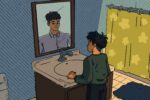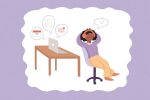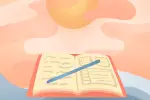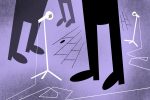School curriculum always sparks controversy in political and social circles. Middle and high school curriculums draw significant debate since they often roll out across entire states or nations. Given the far-reaching impacts of school curricula, people begin to wonder if schools adequately prepare students for the real world. Schools should begin by teaching students to read, write and perform basic math, but shouldn’t repeat these subjects every year until graduation. Although these subjects have value, schools should prioritize teaching students more critical skills, so they don’t face confusion at the culmination of their high school career.
In a New York Times article, “What Students Are Saying about How to Improve American Education,” a student was quoted as saying:
“It feels like once we’ve graduated high school, we’ll be sent out into the world clueless and unprepared. I know many college students who have no idea what they’re doing, as though they left home to become an adult but don’t actually know how to be one. The most I’ve gotten out of school so far was my Civics & Economics class, which hardly even touched what I’d actually need to know for the real world. I barely understand credit and they expect me to be perfectly fine living alone a year from now. We need to learn about real life, things that can actually benefit us. An art student isn’t going to use Biology and Trigonometry in life.”
A study by CBS Philadelphia found that “The average American uses just 37% of the information they learn in school.” So, while the Pythagorean theorem may be necessary for high school, you may not use it daily after graduation (unless you go into a STEM field).
As an alternative, schools should tailor their core curricula to prioritize essential life skills such as:
How To Pay Taxes
Paychecks come with automatic tax deductions, but that doesn’t mean all taxes are paid. Not paying taxes can result in legal problems and hefty fines, yet many high school graduates have no idea how to pay them. Given their importance, high schools should equip students with a thorough understanding of tax payments. In the real world, avoiding tax fraud is crucial.
How To Pay Bills
Paying bills may seem straightforward, but it’s not instinctual. It involves more than just paying rent. Home bills include necessities like water and electricity, which some people must find and pay on their own. Unfortunately, schools don’t explain how to locate these companies or make payments. Are checks enough? Do you need a checking account? High schools should prepare students for these realities.
How To Find Health Insurance
Plain and simple, people get sick, and medical bills are expensive. Good health insurance is something that everyone deserves the right to. Unfortunately, only some have access to it. Those without access sometimes need help finding good, affordable health insurance. No class in school teaches students about this. In the real world, people get sick and would like guidance on managing their medical bills on top of all the other things they must pay for.
How To Do Laundry
Home economics courses are unfortunately dying in many high schools. Since most high school students don’t have access to classes like this anymore, they don’t know how to do things around the house, like laundry. Laundry is a real-world task that not everyone knows how to do, and all laundry machines are different. There’s also the issue of detergent and stained clothes, not to mention the heat and cycle settings. While it might seem like parents can teach this to their children at home, some parents don’t have the time because they have the responsibilities of going to work and providing for their families.
How To Cook
Culinary classes exist in some high schools, but they’re usually electives and require some prior cooking knowledge. Culinary classes should be a part of the core curriculum in all schools; everyone should be able to get that hands-on experience. People who can’t cook and do choose to take a culinary class often get handed duties such as cleaning dishes, which doesn’t help them learn any actual cooking. Many college students go into college not knowing how to cook anything. This is because they were never taught at home or their school didn’t offer these types of courses.
How to Write a Check
While checks are seldom necessary, it doesn’t mean they’ve gone extinct altogether. There will come a time when someone needs to write a check and won’t know how to do it. If we asked a college freshman to write a check, they probably wouldn’t know how to. When the day comes for them to write one, they will most likely make a mistake.
In the end, schools need to start prioritizing things that will benefit their students once they’ve left high school. Too many students are lost when it comes to these things. Instead of making math, English, science, and history core requirements, they should make culinary science, home economics and personal finance integral parts of the national curriculum.
















